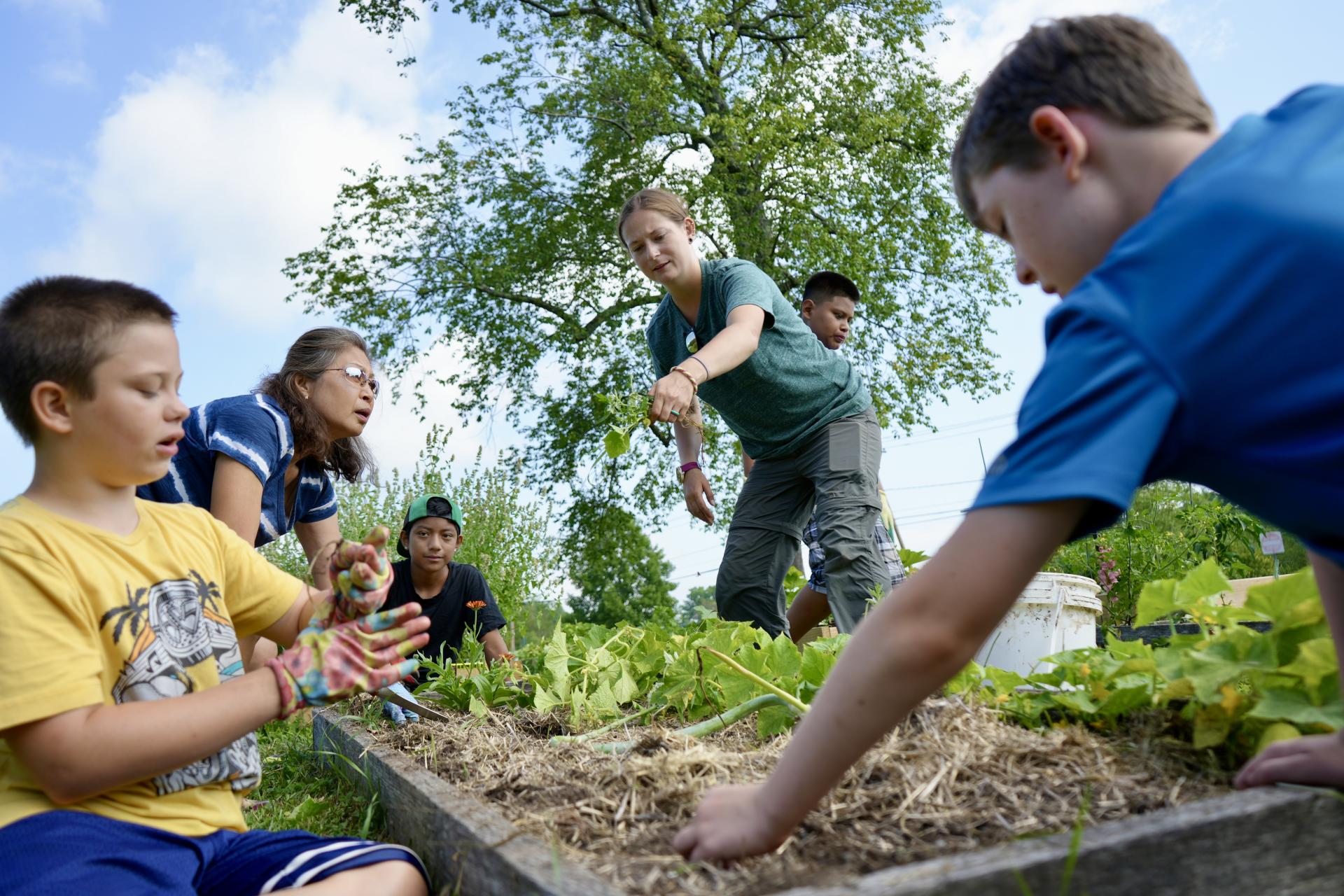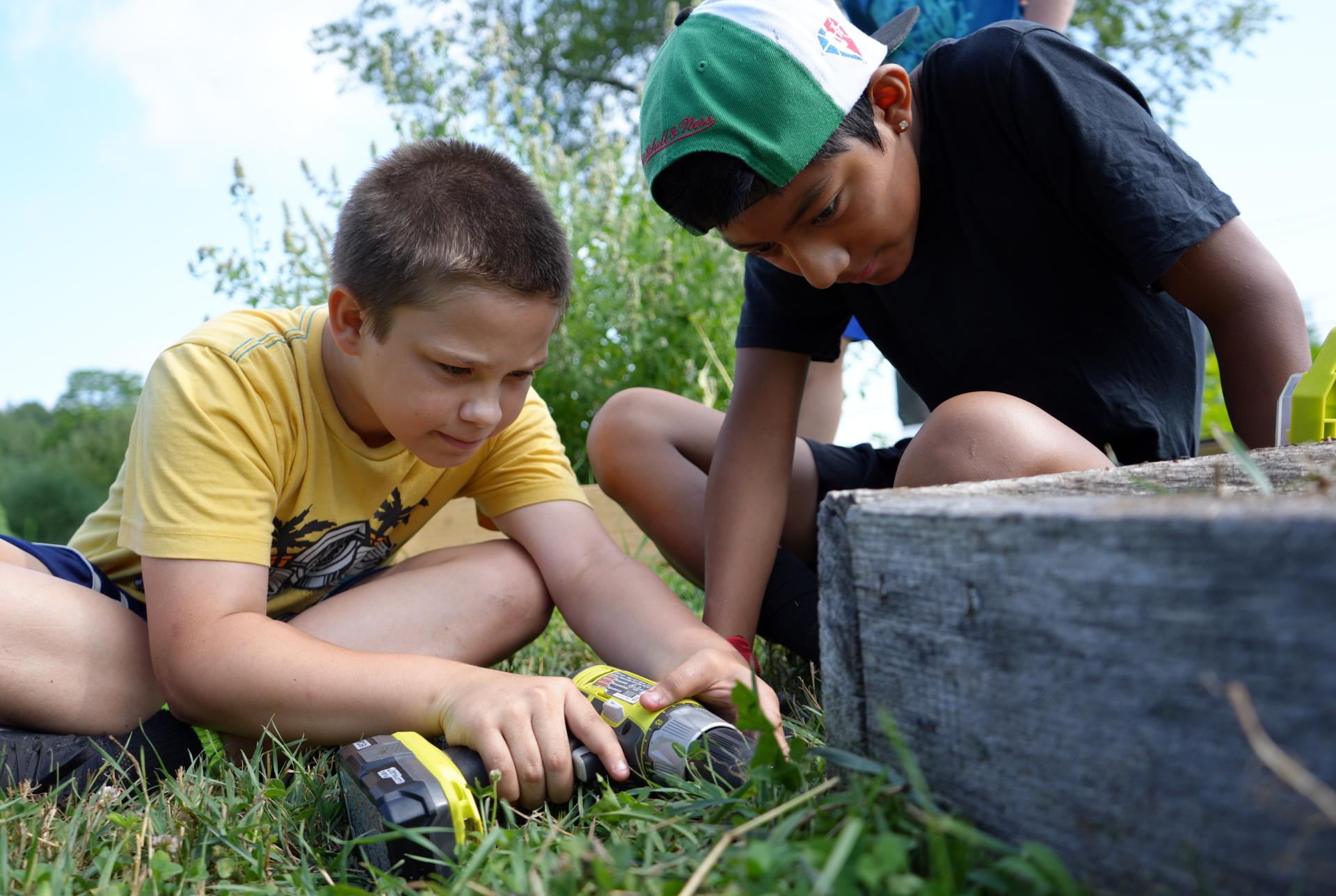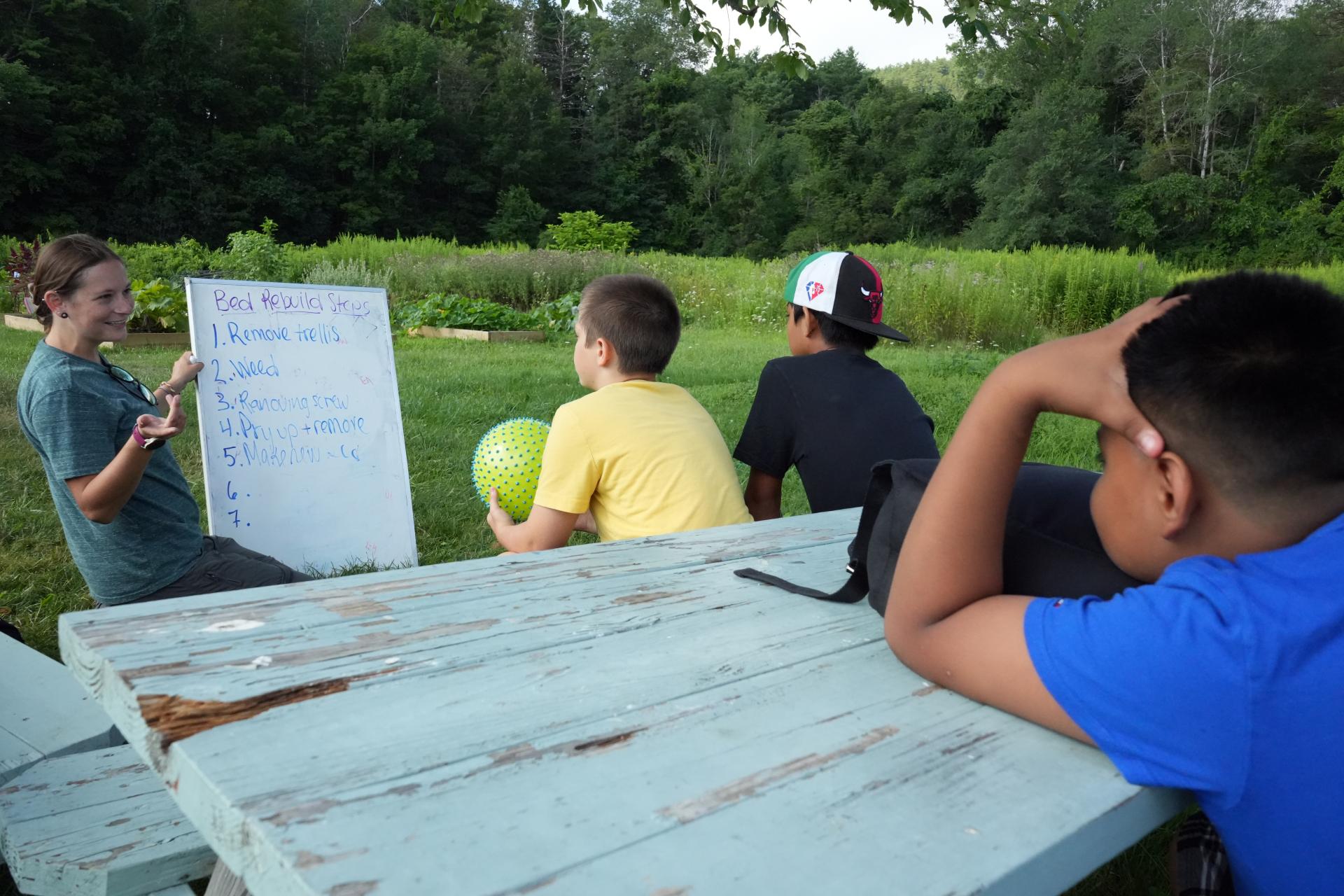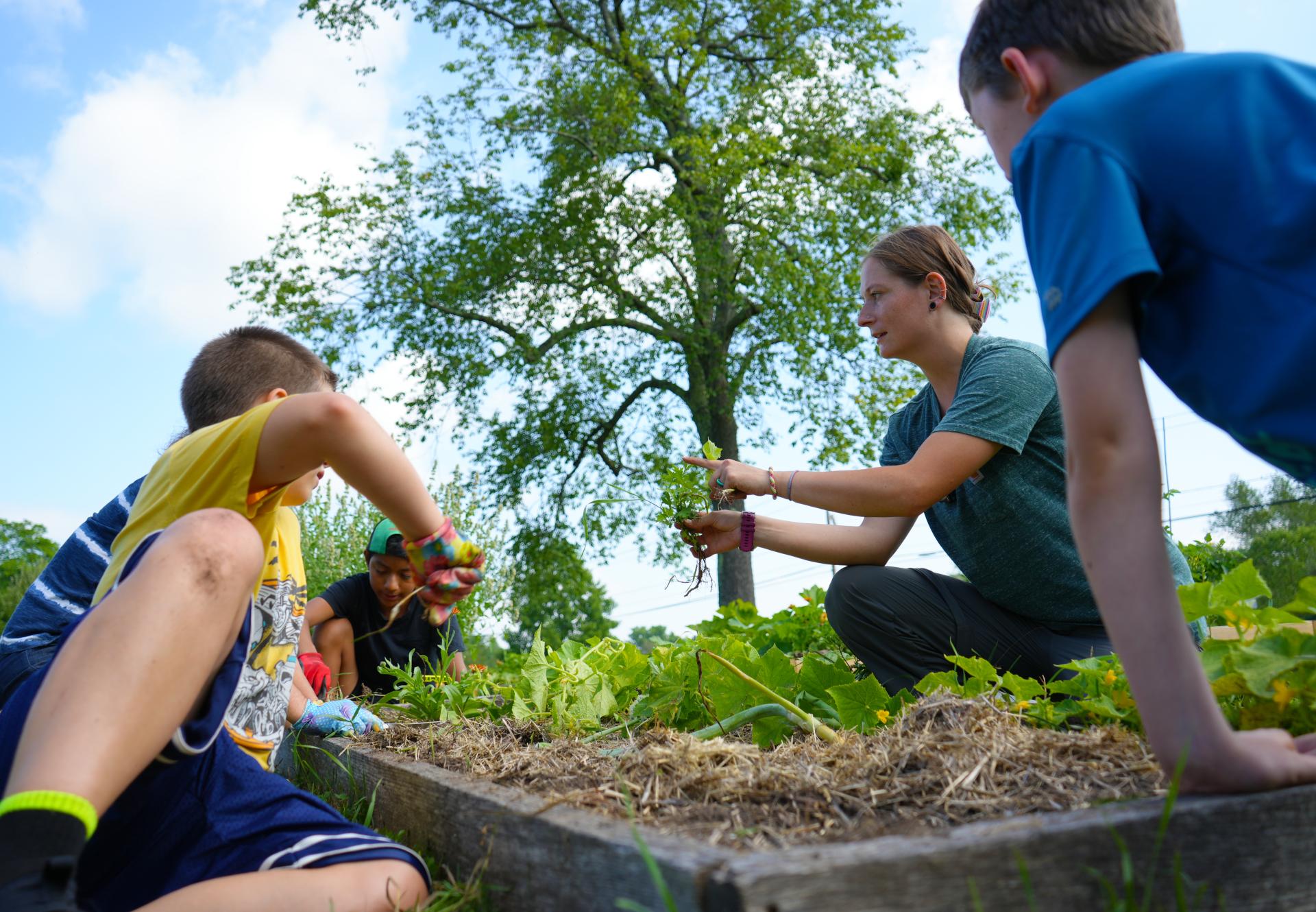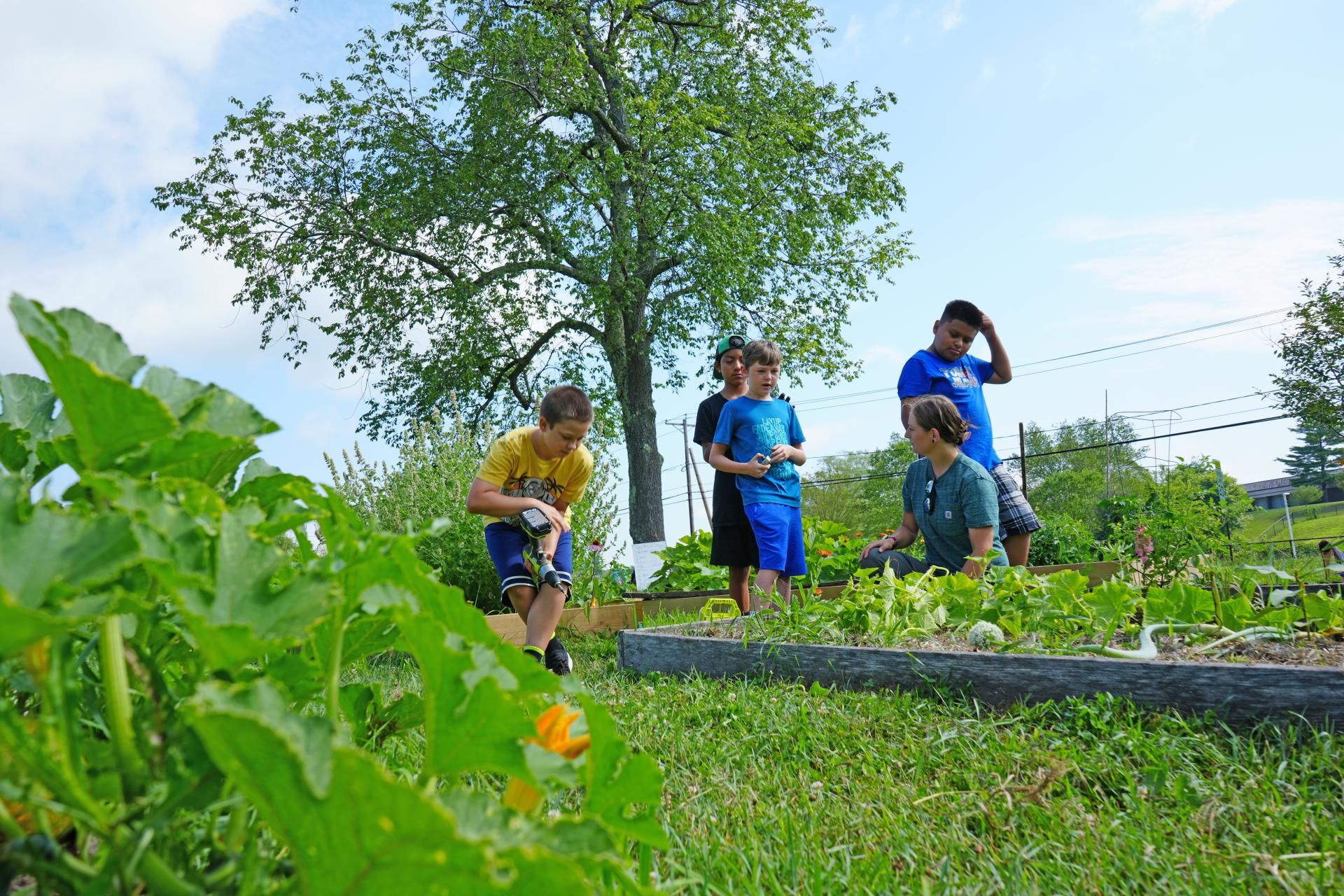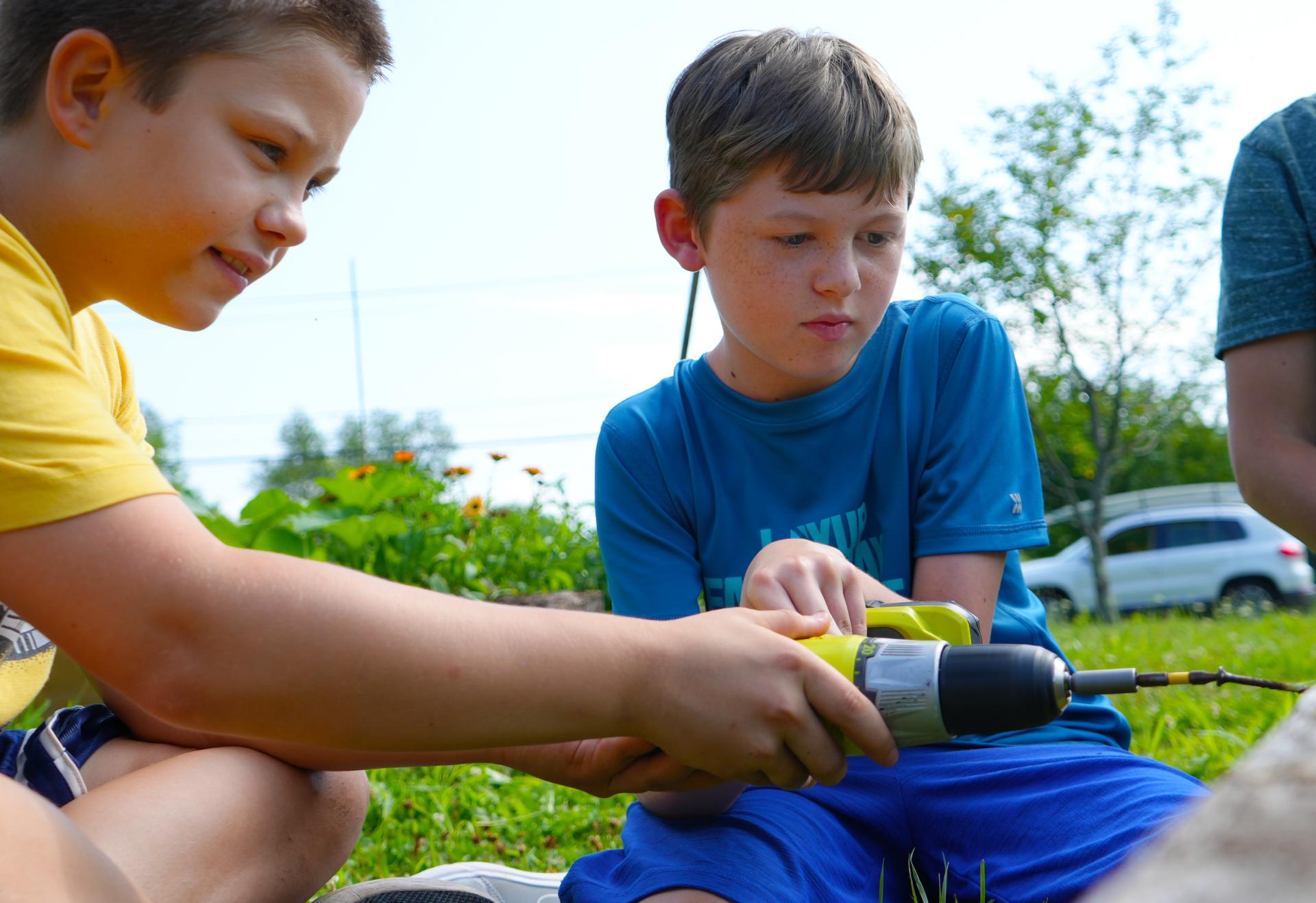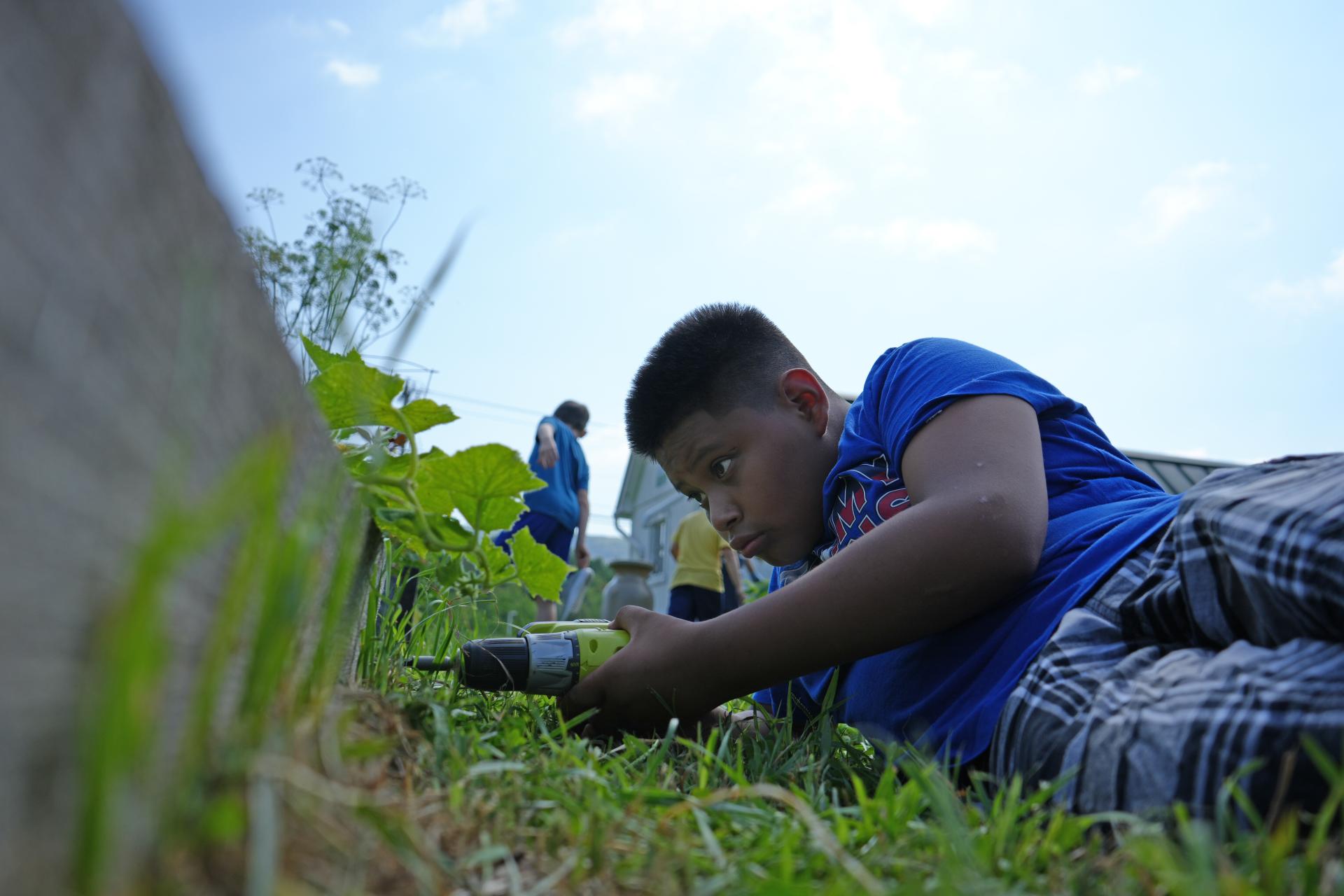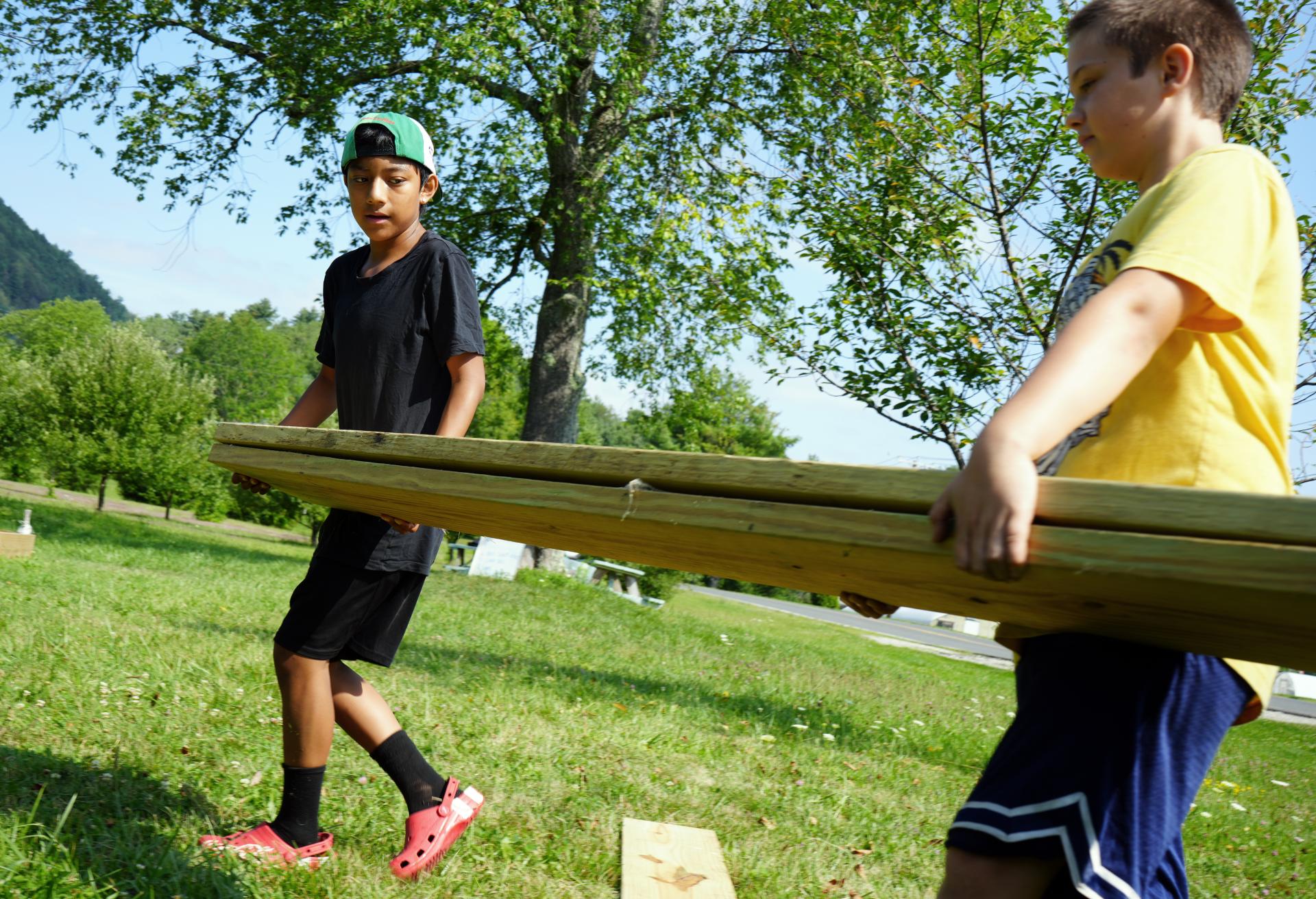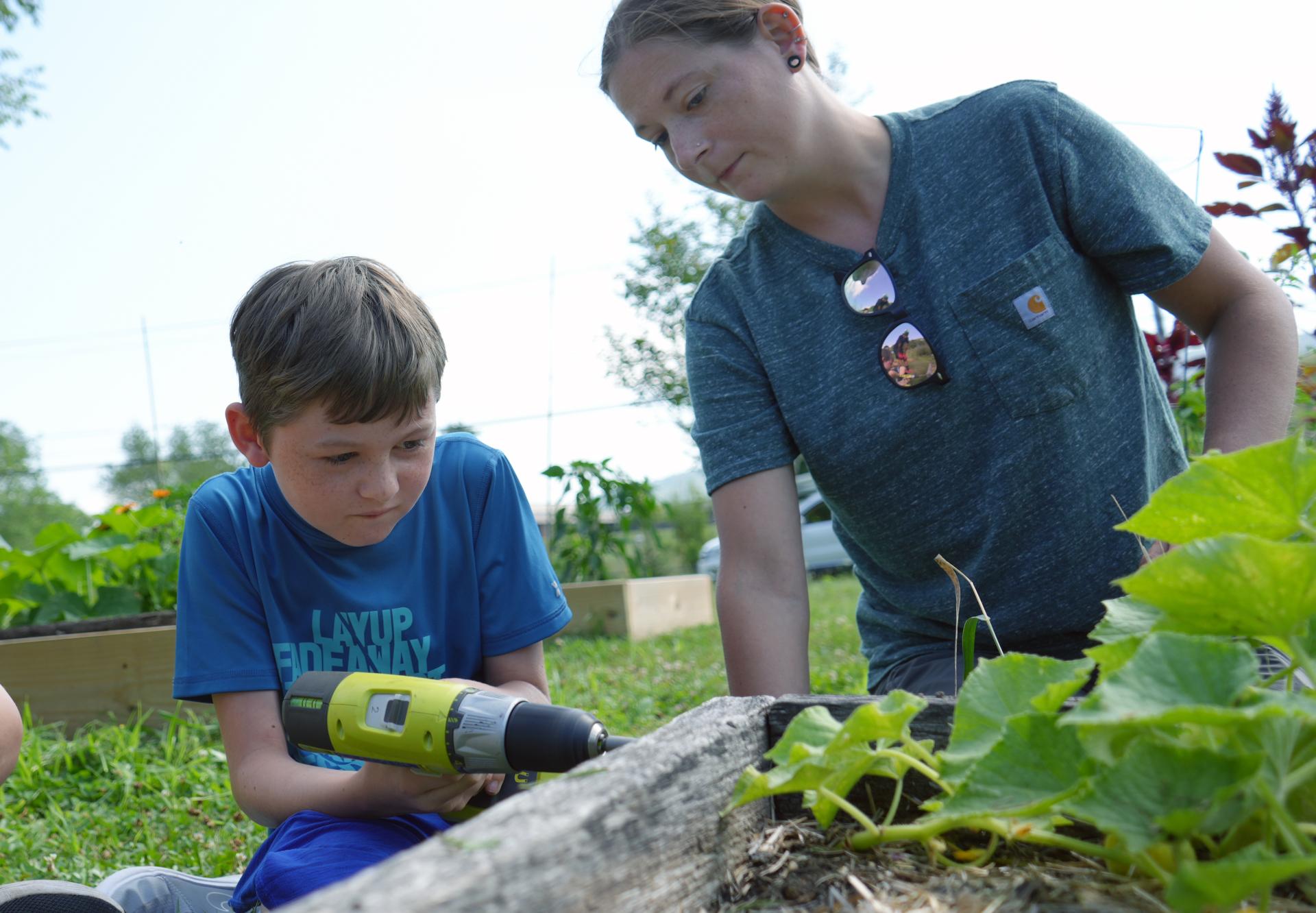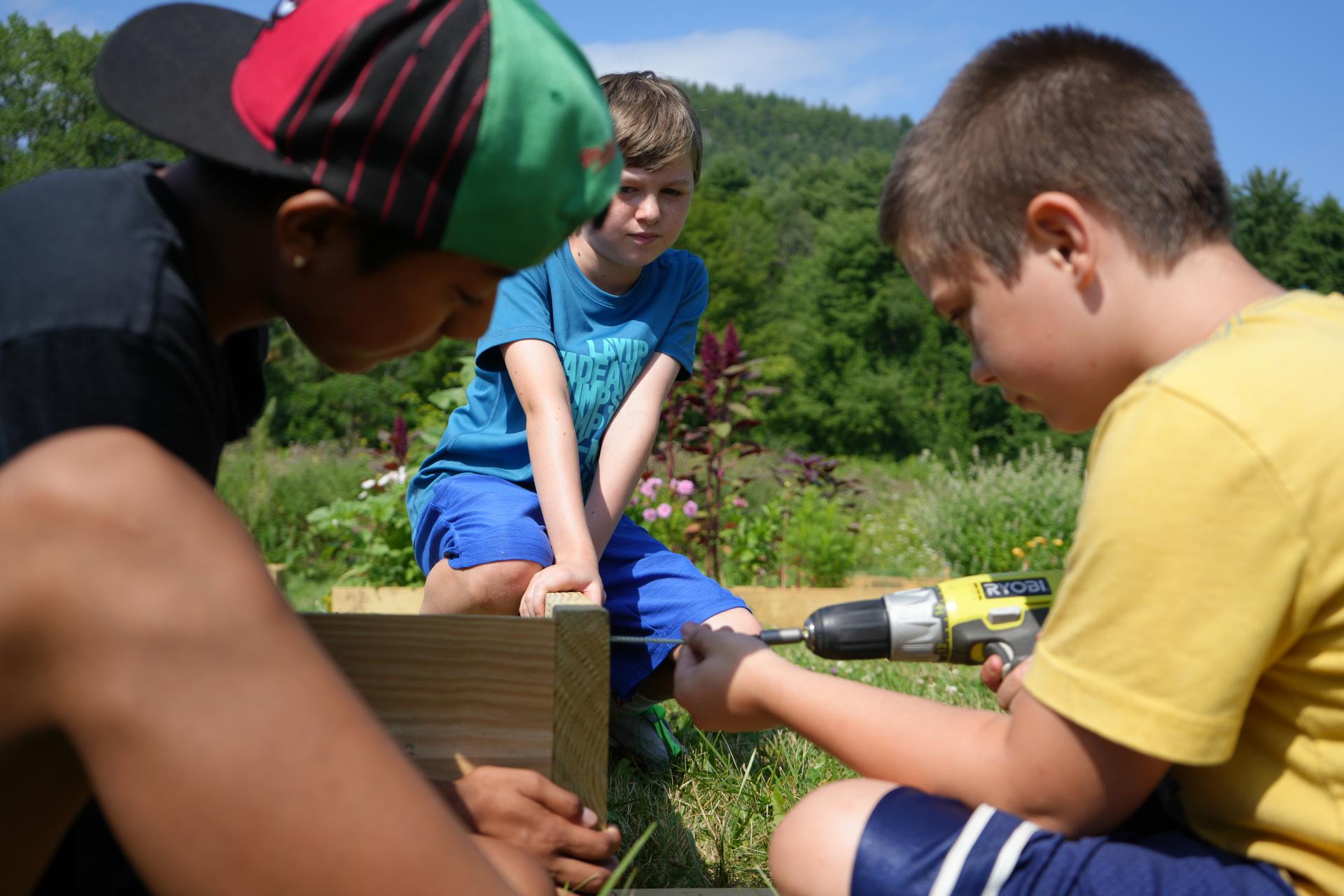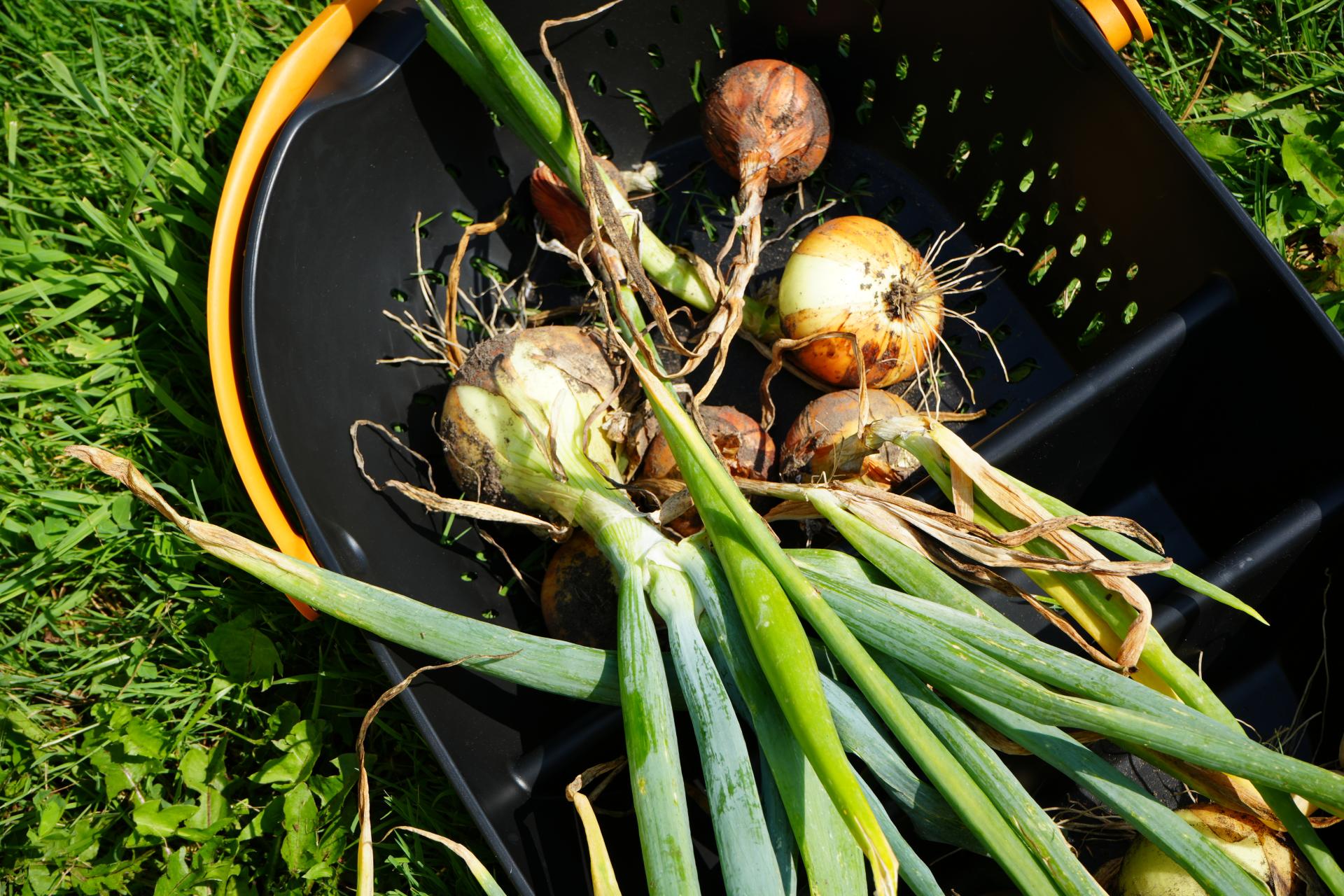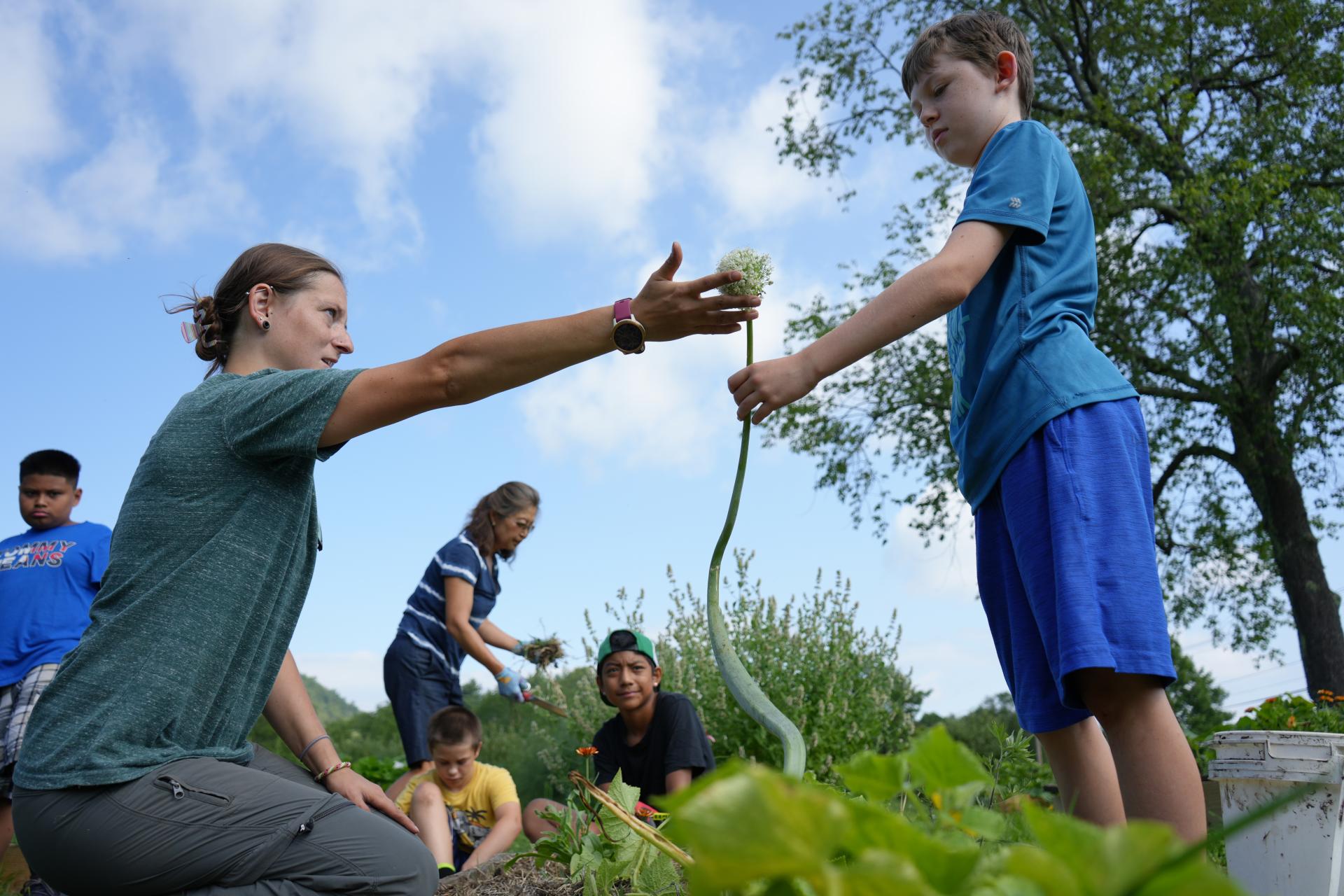You are here
For Young Gardeners, It's Sow, Reap — and Soak
For Young Gardeners, It's Sow, Reap — and Soak
The young gardeners were ready for work, yes. But they also packed bathing suits and towels as a retort to a forecast of fierce August humidity.
At a triangular-shaped, acre-plus patch of garden within the campus of the regional public schools in Great Barrington, Mass., Kessa McEwen, Berkshire Botanical Garden’s education coordinator, scrawled out the to-do list on a white board.
The big task on this hot summer day would be to replace a wooden garden bed that had succumbed to the elements after many vegetable bearing years. The to-list list:
I. Remove trellis
2. Weed the bed
3. Remove screws
4. Pry up and remove the boards
5. Make a new bed
6. Peel back grass
7. Place bed!
8. Level
Not listed (but it went without saying) was: Once the work was complete, turn on the garden sprinkler and set loose a group of soon-to-be sixth graders to cool down in the high heat.
“Hey, did you plant more carrots?" Daniel, one of the young gardeners, asked, as the group assembled in the morning hours.
“Yes, we planted a whole side of carrots,” said Kessa. “Good observation.”
“I like that,” said Daniel.
Daniel was joined by his peers Ben, John and Eli on this recent morning, the four of them participants in Berkshire Botanical Garden’s Farm and Garden summer/afterschool program.
This particular garden is overseen by Project Sprout, a program of Monument Mountain High School. Through a cooperative agreement, Berkshire Botanical Garden takes care of about half of the garden beds through its year-round work with students from the adjacent Muddy Brook Elementary School and W.E.B Du Bois Regional Middle School. Joining Kessa and the young gardeners in this work has been school district paraprofessional Kyoung Bubriski, a.k.a. “Mrs. B.”
In the summer, BBG’s five-week off-site summer camp — run through Project Connection, a nationwide program that encourages students to participate in afterschool activities that have an academic component — includes typical garden sowing and maintenance of these garden beds.
That means Ben, Daniel, John, Eli — 15 youngsters in all — have harvested some mighty tasty veggies this summer.
“What did we harvest last week?” Kessa asked the boys. “The best thing ever. What was it?”
“Potatoes,” they responded. They were psyched about the potatoes. They were also psyched about the screw gun that they took turns using to dismantle the old wooden raised garden bed. They replaced the bed with a new one they assembled with screws. The carefully placed the new bed onto a patch of earth whose grass they had freshly peeled back to beat back unwanted grasses.
“Alright, guys,” said Kessa, “so let’s get to it.”
To make way for the new garden bed, they had temporarily removed a trellis whose wire mesh was embedded in the old raised bed.
“Have you discovered the mystery of the yellow cucumber,” wondered Daniel at one point. He was referring to a cucumber they had harvested days before.
“I think what happened,” Kessa said, “is that cucumber plant didn't get enough water earlier in the season.”
As they weeded the bed, Kessa came across a milkweed.
“Why do we keep it in most places we find it, Ben?" she asked
“Butterflies,” said Ben.
“Yes, milkweed is a host plant for butterflies,” Kessa said. “What kind of butterflies?”
“Monarch,” came the chorus.
The group also noticed a patch of orange-colored eggs beneath a squash leaf.
“Do you guys remember what these are called?” Kessa asked.
The boys were stumped.
“Aphids,” Kessa finally said.
“I knew it started with an 'a'," said Daniel.
Soon it was time to pull out the battery-powered screw gun. The boys chose the “Turbo” setting for reasons that don’t require explanation. Within a half hour they had dismantled the old bed and assembled a new one.
“We're like carpenters out here," said Eli.
"I'm so glad I didn't wear a white shirt today," said Ben, who was soaked with sweat.
With the garden hose stretched out into an open field, they turned the spigot counterclockwise. They knew what time it was: Once the sprinkler had sprung to life, clearly it was chill time.
Help Our Garden Grow!
Your donation helps us to educate and inspire visitors of all ages on the art and science of gardening and the preservation of our environment.
All donations are 100 percent tax deductible.

